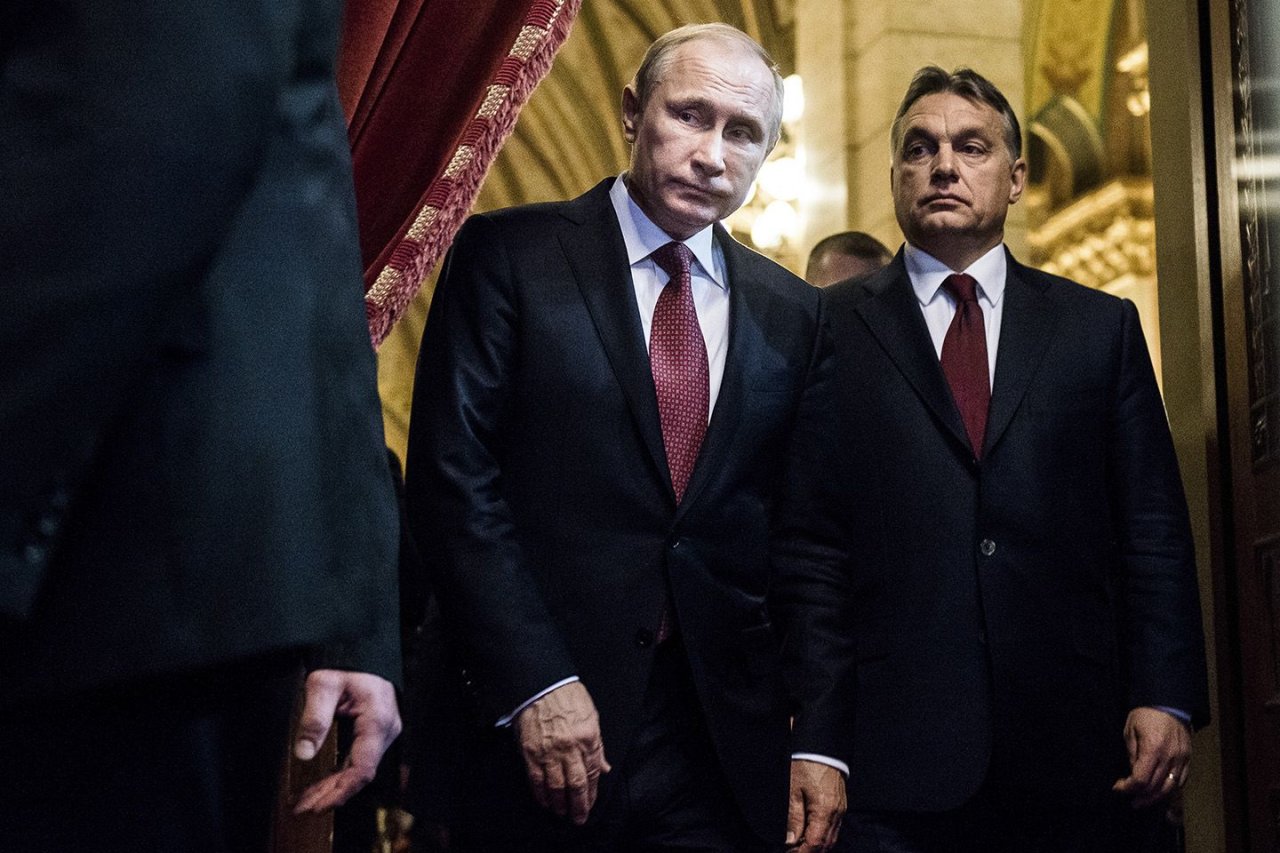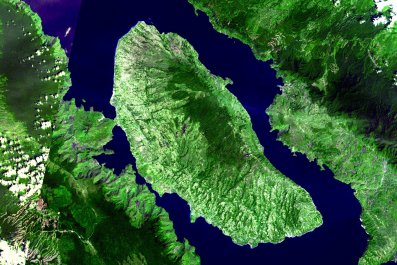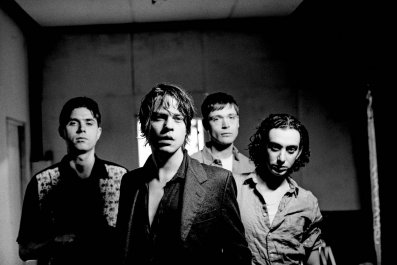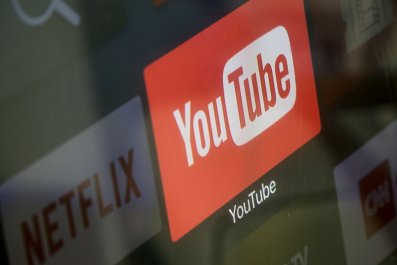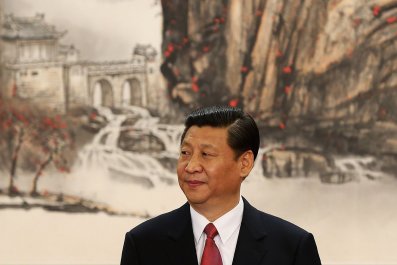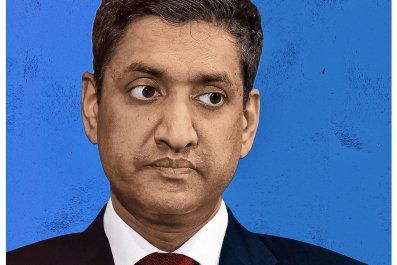There was a spring chill in the air on April 8, but tens of thousands crowded around the Danube River in Budapest, Hungary, waiting late into the night to hear their hero speak. When he finally emerged, around midnight, they were jubilant, "We have won," Prime Minister Viktor Orbán declared. "We have given ourselves a chance to defend Hungary."
Voters had just handed him a landslide victory, a historic third term in office and a supermajority in the parliament. Orbán had run a staunchly anti-immigrant campaign and denounced the European Union as an "empire." And most voters had loved it. So did Russian President Vladimir Putin. For more than a decade, he has done everything in his power to help Orbán succeed, spreading his divisive brand of anti-EU sentiment across the continent—a process that RT, the Russian state news agency, hailed as "the Orbánization of Europe."
For years, Russia tried to weaken and divide the EU, supporting groups ranging from Catalan separatists in Spain to British Brexit activists. The Kremlin had offered loans to France's National Front and used its propaganda channels to whip up fake news about the persecution of Russian minorities in the Baltics. According to Political Capital, a Budapest-based think tank, Russian-based trolls, Twitter bots and social media sock puppets have been put to work, boosting exaggerated stories of crimes by immigrants and "selling pro-Kremlin narratives within a tabloid, conspiracy package." In the neighboring Czech Republic, the populist, pro-Moscow president, Milos Zeman, was re-elected in February after his pro-EU opponent, Jirí Drahos, fell victim to a concerted smear campaign accusing him of being a pedophile and a Communist collaborator. Most of the stories originated with some 30 Czech websites that Kremlin Watch, a unit run by the Prague-based European Values think tank, has linked to Moscow. The goal? To help pro-Putin sympathizers and sow doubt and discord across Europe, making it harder for Brussels to collectively punish Russian aggression in places such as Ukraine.
The Kremlin has certainly tried to help many of Europe's nationalist parties and politicians. But its support of Orbán has been unprecedented in its scale and scope. It has included not just propaganda but also sweetheart gas deals, multibillion-dollar loans, strategic investments and covert support for violent far-right hate groups. The payoff has been huge—at least for the Kremlin. Orbán has been a pro-Putin voice in Europe, even as the rest of the EU has recoiled from Moscow in the wake of its annexation of Crimea and its support for rebels in eastern Ukraine. The Hungarian leader has spoken out against sanctions on Russia and regularly welcomed Putin to Budapest at a time when other EU leaders were trying to condemn him. He's also installed a Russian-style crony capitalist elite of oligarchs, used loyal businessmen to take over opposition news media and passed legislation to curb the work of nongovernmental organizations (NGOs) and civil society groups. Most important for the Kremlin, Hungary has become the heart of a growing rebellion against the EU's liberal democratic values, principles and rules. "The global rise of conservative nationalism...is the menace of our times," says political economist Will Hutton of Hertford College, University of Oxford. "Europe is reacquainting itself with its darkest demons."
Russia certainly did not create Europe's populist backlash (or America's, for that matter). But the Kremlin is more than happy to take advantage of it—and in Orbán's Hungary at least, the strategy is working.
Hungarian Renegade
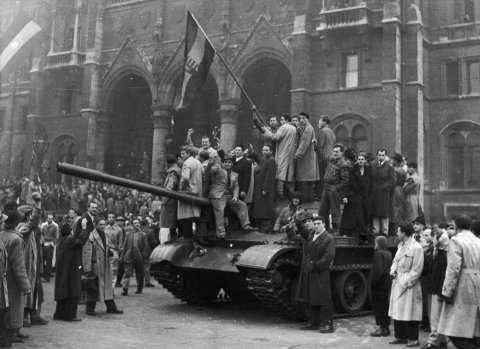
Orbán wasn't always a friend to Moscow. He began his career as an anti-Russian, anti-Communist, liberal dissident. In 1988, he wrote to Hungarian-American financier George Soros—who would later became Orbán's greatest enemy—to ask for help with a scholarship to Oxford University. In the letter, recently unearthed by the Hungarian media, the young Orbán said he wanted to study the "rebirth of civil society." He got the scholarship, and on his return to Hungary after the fall of Communism, he helped build Fidesz, a student-oriented, pro-free-market political party. Like many young Eastern European liberals of that era, Orbán believed that joining the EU and NATO would help Hungary overcome its economic stagnation—and free it from Moscow's influence.
In 2004, Orbán's dream was realized when Hungary and other Central European nations were accepted into the EU. "We thought that once we joined Europe, that would be the end of all our problems," says Budapest-based publisher Tamas Farkas, a disillusioned early supporter of Fidesz. "Many people, especially of an older generation and in the countryside, were used to the government looking after all their problems. They thought, We can sit back and Brussels will make us rich without us doing anything."
Instead, open borders and free trade heralded a massive brain drain of young Hungarians seeking a better life abroad while the economy stagnated. By 2016, nearly 4 percent of the country's gross domestic product consisted of handouts from the EU in the form of subsidies and grants aimed at developing the continent's poorest members. Hungary is today among the greatest net beneficiaries of EU funds, receiving 4.5 billion euros ($5.5 billion) while contributing less than 1 billion euros ($1.23 billion) to the EU annual budget.
At the same time, Hungary also became one of the most corrupt countries in the EU, second only to Bulgaria in graft and official theft, according to Transparency International, an anti-corruption NGO. "People became angry when they realized that the EU was not a free ride," Farkas says. "They began voting for politicians who told them all their problems were caused by outsiders, not by them."
As recently as October 2008, in the wake of Russia's invasion of Georgia, Orbán, then the country's opposition leader, was railing against Russian aggression. "What happened [in Georgia] is something we have not seen since the end of the Cold War," he told reporters. "This raw policy of force, shown now by Russia, has been unknown for 20 years in Europe." April Foley, then the U.S. ambassador in Budapest, reported to Washington that Orbán was committed to trans-Atlantic relations and believed that the greatest threat to Hungary was "the survival and return of Russia and the far left," according to State Department cables published by WikiLeaks. "Orbán may be no angel," wrote Foley, "but he is on the side of the angels on these issues."
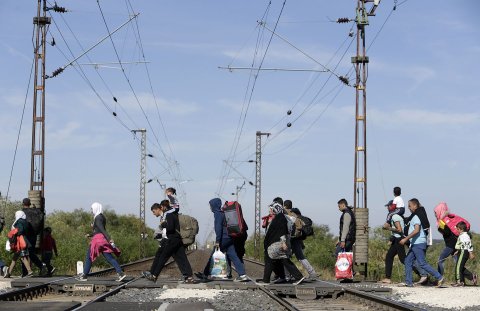
Later, however, as Orbán campaigned in the run-up to elections in 2010, he found that populist, xenophobic rhetoric was a hit with voters. At the same time, his long-serving economic adviser György Matolcsy—now the governor of Hungary's central bank—persuaded him that his liberal worldview was out of date. According to a major investigative project by the independent Hungarian journalistic group Direkt36, Matolcsy managed to convince Orbán that the emerging East would soon become not just the most important economic player in the West but also its dominant political model. In November 2009, Orbán traveled to St. Petersburg to see Putin; the next month, he went to Beijing to meet Xi Jinping, now China's president.
Orbán was apparently impressed by both men. Soon, he was citing Russia and China as exemplary models—and declaring, with the zeal of a convert, his aim of building "an illiberal state based on national foundations" in Hungary. Orbán is like "Benito Mussolini, the former socialist journalist turned fascist dictator," says Vladimir Tismaneanu, a professor of politics at the University of Maryland. "He knows the liberal tradition and the value it places on pluralism. He comes from the civil society and does everything to annihilate it. He's a renegade who tries to convince himself that breaking with his past is the right choice." In April 2010, after a campaign based on his nationalistic new platform, Orbán was elected prime minister.
Putin was evidently no less impressed by Orbán—or at least by the disruptive possibilities of his sudden enthusiasm for nationalist values. The question was: How could Russia help spread his incendiary message?
Billions in Lost Profits
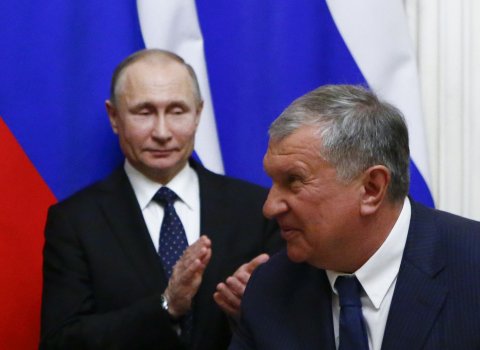
The answer soon became clear. Orbán, now prime minister, returned to Russia in November of that year for a meeting with Putin. There, they discussed a thorny problem that only the Russian leader could solve. In 2009, Surgutneftegas, the Russian state-owned energy giant, had bought 21.2 percent of Mol, Hungary's biggest oil company. The government that preceded Orbán's had prevented the Russians from exercising shareholder rights, which angered Russian Deputy Prime Minister Igor Sechin. According to the WikiLeaks cables, the U.S. Embassy reported to Washington that Sechin had threatened Mol's CEO that he was "not only fighting with Surgutneftegas, but with the Russian state, which has tools that companies do not have."
The last thing the newly elected Orbán wanted was a showdown with Moscow. Instead, he proposed that Hungary buy out Surgutneftegas's stake in Mol. That would not only help Orbán assert his control over the company but would aid him domestically as well. Sándor Csányi was one of Hungary's wealthiest men, head of the country's largest bank and vice president of Mol. A state buyout of the company would help Orbán curb Csányi's influence—and prepare the way for Orbán to take control of the country's energy market. But for that to happen, Sechin, Russia's oil industry bulldog, would have to surrender the stake. It was a choice, from Putin's point of view, between profits and geopolitics. The latter won out. By April 2011, Moscow's stake in Mol was in Hungarian state hands.
The next favor that Orbán needed from Putin involved MET, the country's gas-trading company. It was originally founded by Mol, but by the time Orbán came to power, its ownership structure was opaque. MET had deals to import gas from both Western suppliers and from Russian gas giant Gazprom. In 2011, gas supplied by the West was cheaper than buying it from Russia, enabling the middlemen of MET to make much greater profits if they were permitted to wriggle out of long-standing contracts with Gazprom. According to a study by the Corruption Research Center Budapest, a series of decisions made by the Orbán-controlled government allowed MET to increase supplies from the West and netted the company's billions. More important, it allowed utility prices to consumers to fall, further endearing Orbán to voters.
Gazprom willingly paid the price. The Russian company had a so-called take-or-pay agreement with MET, in theory obliging the Hungarians to pay up for the full amount of gas they had contracted to buy, whether they used it or not. And though Gazprom complained bitterly when the German energy company E.ON defaulted on its agreement, it remained silent on the Hungarians' delinquency. That decision cost Russia billions in lost profits. But again, the payoff was political—cheap energy prices were a major factor in Orbán's second election victory in 2014. (MET denies these allegations in full. MET is proud to be present in 15 countries across Europe and to practice fair and open market behavior without any political agenda. MET does not, and did not, hold any of the alleged long term gas supply agreements, and hence there were no 'take-or-pay' arrangements and settlements.)
Around the same time, Russia also decided to help Orbán politically with nuclear energy. The Hungarian government planned to build two new reactors to go alongside a Communist-era power station near the central Hungarian town of Paks. Delegations from U.S. nuclear company Westinghouse, French energy company Areva and contractors from Japan and South Korea visited Paks with a view to making a bid. But in August 2013, Orbán privately met with the head of Russia's Rosatom, a state-owned nuclear energy corporation. Though the outcome of the meeting would not become public until Putin and Orbán announced it in Moscow in January 2014, the Hungarian premier had agreed to award the Paks expansion project to Rosatom without a public tender. A key factor in the decision: The Russian government offered to lend Orbán 10 billion euros ($12.3 billion)—by far the largest investment in Hungary in years.
Putin's Playbook
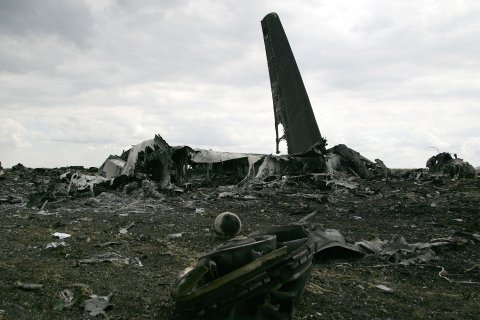
As the secret negotiations on the Paks reactor deal were being conducted, a wave of migrants, unprecedented since World War II, flocked to Europe's borders. The crisis triggered controversy and profound soul-searching by the continent's most prominent leaders. "The new politics is not left versus right," Steve Bannon, President Donald Trump's former chief strategist, told an audience in Washington in March. "It is globalist versus nationalist." In 2013, Orbán emerged as Europe's most powerful anti-globalist voice, one that enjoyed ridiculing the Brussels elite, to the Kremlin's delight.
Speaking on a holiday that commemorates Hungary's 1848 revolution against the Habsburg Empire, he told a large crowd of admirers that Christian Europe and Hungary were waging a "civilizational struggle" against a wave of mass migration, organized by a network of troublemakers and "NGOs paid by international speculators." Among that last group, he singled out his old sponsor Soros—who funds many civil society groups and a university in Budapest—in terms that came perilously close to anti-Semitic.
"Many view such tactics as crude, distasteful and even borderline racist, stirring unpleasant memories from the 1930s," says veteran foreign correspondent and Budapest resident Adam Lebor. "But they worked…because they focused on ideas that challenge Western liberal taboos: sovereignty, effective borders, the importance of a shared history and culture and a sense of national unity."
Hungarian liberals and journalists have been fighting a losing battle against Orbán's undoubtedly popular message of national exceptionalism. "Orbán's bigoted vision leaves me ashamed to be Hungarian," independent journalist Kata Karáth blogged recently. "What I hate most is the way the Hungarian government tries to define what a 'real' Hungarian should be…white, heterosexual, Christian or at least non-Muslim."
Yet Orbán's relentless attacks on refugees and immigrants have proved to be a winning message not just at home but across central Europe. Austrian Chancellor Sebastian Kurz and German Interior Minister Horst Seehofer have both echoed his hard-line message on immigration—and publicly welcomed him as an honored guest. "More and more, political leaders in Europe are coming to the same conclusion," says Fidesz's spokesman, Balazs Hidveghi. "Viktor Orbán is right."
Orbán also took pages out of Putin's playbook: packing formerly independent institutions with his supporters and creating a network of cronies bound to himself through corruption. He used his parliamentary majority to bring formerly independent arms of the Hungarian state and society, including prosecutors' offices, government auditors and the media, under Fidesz control. The EU was outraged. "You signed up to the values of the union. You have violated every single one of them," Guy Verhofstadt, the European Parliament's chief Brexit negotiator, said in March. "You want to keep the EU funds, but you don't want our values."
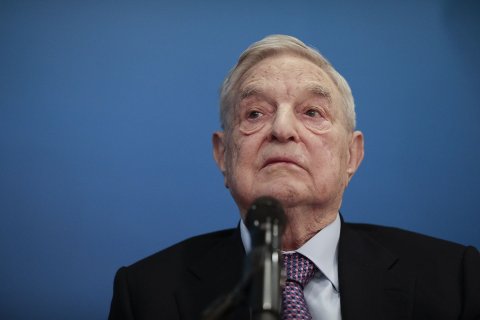
Soros, meanwhile, has accused his former protégé of turning Hungary into a "mafia state" modeled on Putin's. And the EU has also uncovered extensive evidence that its own funds have been channeled toward enriching Orbán's friends and family. This year, the EU's anti-fraud monitor found "serious irregularities" and "conflicts of interest" in the awarding of contracts for upgrading street lighting in towns and cities worth more than 40 million euros ($49 million), which went to companies owned or controlled by Orbán's son-in-law István Tiborcz. Lorinc Mészáros, the mayor of Orbán's home village and an old school friend of the prime minister's, is a gas plumber by trade but now owns publishers, hotels, a nuclear engineering company and a bank. He has become one of Hungary's richest men during his schoolmate's tenure. Both Tiborcz and Mészáros have denied any wrongdoing.
But as former Hungarian Foreign Minister Peter Balázs told CNN in April, "Orbán is...following the Russian model. He...has made a very sharp turn toward Eastern dictatorship."
A Good, Reliable Friend
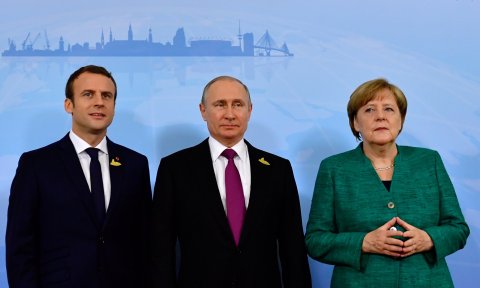
Yet it was in March 2014 when Orbán's friendship with the Kremlin really began to pay off. That's when Russian troops in unmarked uniforms overran the Crimean Peninsula. For most European leaders, the move transformed Putin from unruly neighbor to pariah. That status was cemented in July 2014 when a Malaysian Airlines Boeing plane was shot down over eastern Ukraine by rebels using a Russian army Buk surface-to-air missile system. Both the EU and the U.S. imposed several waves of increasingly harsh sanctions, which excluded most Russian companies from raising international credit and blocked key Putin courtiers from holding assets in the West.
The EU's position required a unanimous vote of all members, and Orbán—along with Greece and Cyprus, Russia's traditional allies—was skeptical about sanctions. A major diplomatic effort, led by German Chancellor Angela Merkel, brought the two countries in line. "Sometimes you have to remind people who is paying their bloody bills," says one EU diplomat who is familiar with the negotiations but was not authorized to speak on the record. "Merkel was very determined to have a united European front against Russian aggression."
Orbán signaled his tacit support for Putin by hosting him in Budapest no fewer than three times after 2014. Putin would drop by on the slimmest of excuses—for instance, in August 2016 to attend the World Judo Championships, where the two leaders sat joking and laughing as they watched the matches. Protesters were kept well away from the Russian president's motorcade, despite having secured permits for demonstrations.
Orbán invariably signaled his skepticism over sanctions, as well as his disregard for the EU's attempts at collectively condemning the Kremlin. "The Western part of [Europe] has manifested a very anti-Russian stance and policies," Orbán told a joint press conference in Budapest in February 2017. "The era of multilateralism is at an end."
Putin, in response, called Hungary an "important and reliable partner" for Russia. And being welcome to visit central Europe at a time when Brussels was labeling Russia a rogue state was a huge diplomatic asset. Putin "wants to show NATO and the EU that he has a good, reliable friend," former Hungarian Foreign Minister Géza Jeszenszky told the Financial Times at the time of Putin's 2017 visit. "A Trojan horse within the alliance."
Yet one thing is still holding Orbán back from all-out rebellion against Brussels over sanctions. Most Hungarian voters may be sympathetic to Putin's conservative worldview. But many, especially among the older generation who are Orbán's core constituency, still see Russia as a colonizing power that suppressed a democratically elected Hungarian government in 1956. So when 23 countries in March expelled more than 160 Russian diplomats in the wake of the attempted murder of former Russian military intelligence officer Sergei Skripal in Salisbury, England, Hungary expelled one too.
EU sanctions on Russia come up for renewal every six months, and so far, Orbán, for all his anti-EU rhetoric, has obeyed Brussels's line on every vote since 2014. "There is not one element of our decisions or policies that can suggest that we are closer to Russia or Mr. Putin than any other Western country," insists Hungarian government spokesman Zoltán Kovács.
Putin might hope for more support from Orbán. But as the Kremlin's decadelong bet shows, Russia is ready to play a long game. Its investment has already begun paying dividends. Orbán's landslide victory in April shows that conservative nationalism is firmly entrenched in Hungary and is spreading, as demonstrated by the steady growth of populist parties ranging from Alternative for Germany to the Danish People's Party. According to Hungarian political scientist Ágoston Mráz, what European elites really fear is that Orbán's vision resonates much more deeply among voters than any alternative that Brussels can offer. "National egoism is becoming an attractive alternative to integration," warned European Council President Donald Tusk last year in a stark letter to all heads of European states. "In a world full of tension and confrontation, what is needed is...political solidarity of Europeans. Without [it], we will not survive."
With a sanctions-weakened economy smaller than Spain's, Russia can't challenge the EU economically. Militarily, despite Putin's recent talk of new generations of nukes and a massive increase in Kremlin military spending, U.S. support for NATO still ensures massive superiority for the alliance over Moscow. But when it comes to propaganda, Putin has proved a master. He seems to know that if the EU is ever to unravel, it's most likely to do so from the inside out.
Updated, 5/18: This story has been updated to include a statement from MET.



